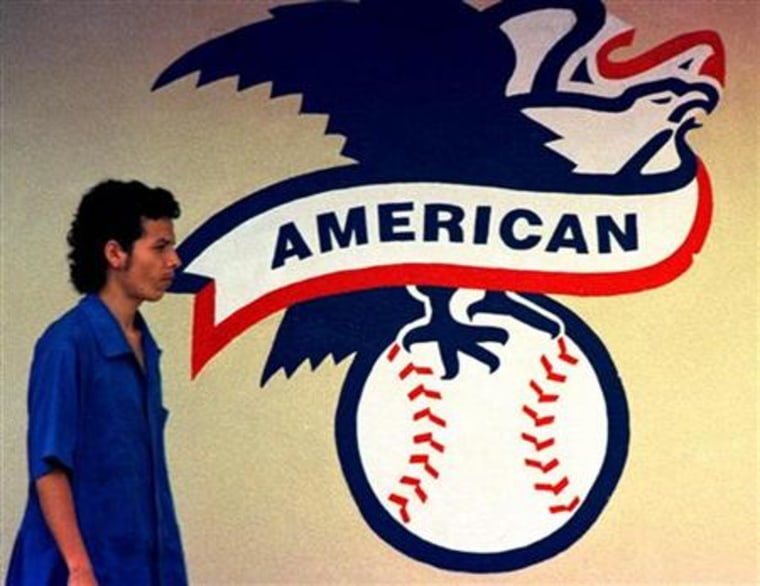The average baseball is only used for a few pitches in the U.S. Major Leagues, but for the Costa Ricans who make them each ball is the result of hours of painstaking stitching by hand.
For 10 hours a day, workers at the world's only factory authorized to supply Major League Baseball, in the town of Turrialba in central Costa Rica, sit at desks yanking strands of waxy red fiber to form each baseball's 108 stitches.
In professional games the balls quickly become too dirty and scuffed by bats to use, or get lost in the crowd on a foul ball or home run. To feed the demand, the factory turns out as many as 2.4 million baseballs a year, all assembled by hand.
The cork and rubber cores, Tennessee Holstein cowhide and gray New Zealand sheep's wool yarn are shipped tax-free to the plant where more than 300 workers sit in neat rows to sew, their arms rhythmically rising and falling like a rowing team.
The finished balls are boxed up and shipped to Miami.
Famed for its stability in a turbulent region, Costa Rica is an economic success story in Central America, earning money from eco-tourism, coffee and fruit exports, and factories making everything from making microchips to pharmaceuticals.
Manufacturer Rawlings Sporting Goods, which has an exclusive contract to supply Major League Baseball until 2013, moved its factory here from Haiti in the late 1980s, fleeing the violent aftermath of a dictatorship in the Caribbean nation.
The workers are glad for the pay in a depressed farming town with few other jobs, but few show much interest in baseball in a country that is much more passionate about soccer.
"I really don't understand baseball," admitted Minor Quesada, who has worked at the factory for 17 years.
The work is tough and some employees have shoulder injuries from trying to churn out too many balls to win bonuses.
They earn a base salary of $1.60 an hour, slightly above Costa Rica's minimum wage but a world away from the $3 million average salary of a U.S. professional baseball player.
Still, for many in Turrialba it's a good deal.
"It's pretty hard to find work," said Rocio Gamboa, 33, who has been stitching baseballs at the factory for 11 years.
She produces 200 balls a week, and receives a 52 cent bonus for each ball she completes above the 156-ball minimum. The major league balls are sold at retail for $14.99.
